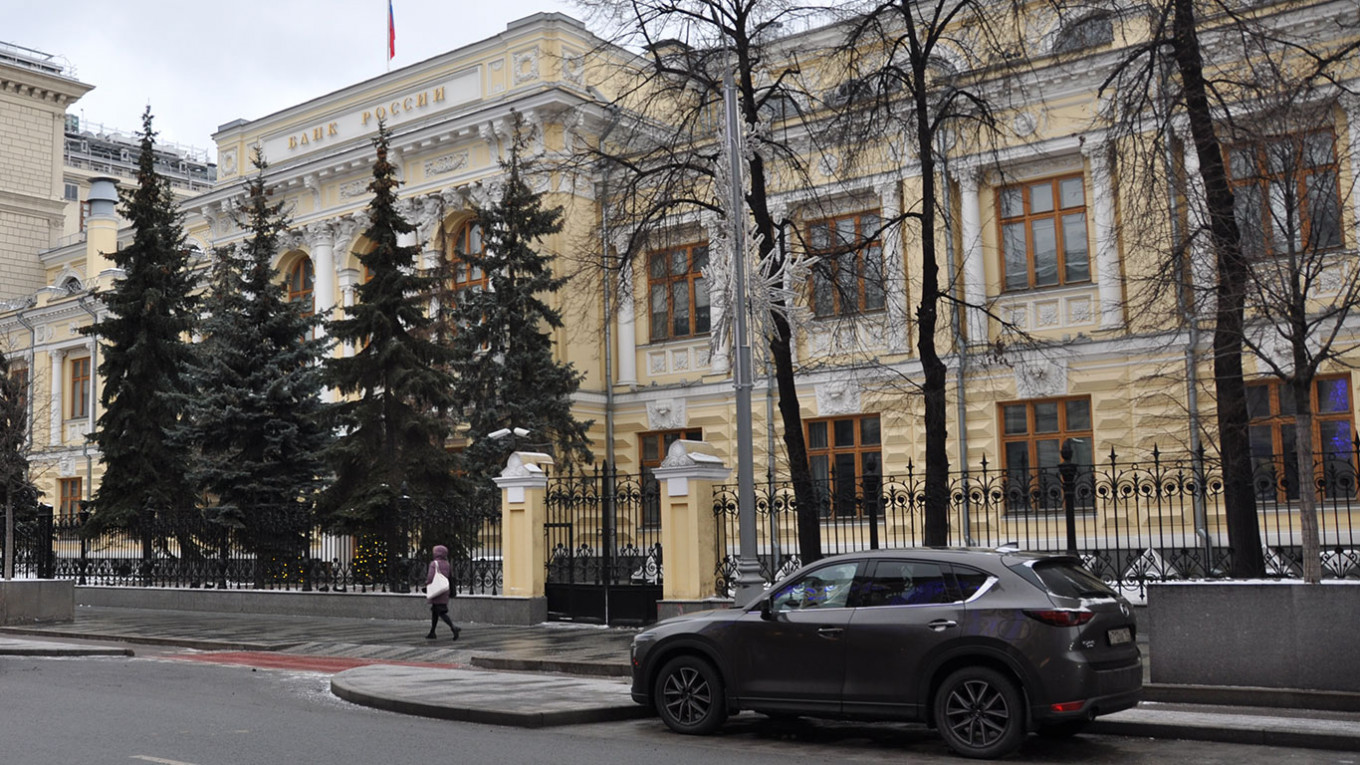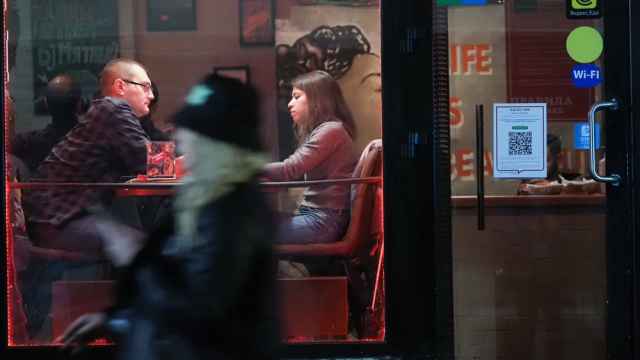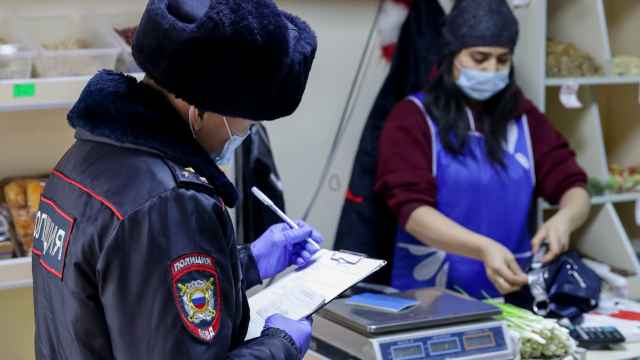Russia hiked interest rates to 20% on Monday in a dramatic attempt to stabilize the country’s financial markets.
The decision was taken in an emergency meeting Monday morning before trading started, but failed to stop the ruble from collapsing once markets opened for business.
The bank said that this would allow it to "support financial and price stability and protect citizens' savings from depreciation."
In frantic trading when markets opened on Monday the ruble collapsed by at least 20%, passing the 100-mark against the U.S. dollar. Banks and exchange outlets around the capital were charging much higher rates for hard currency.
Russia has been hit with unprecedented economic sanctions after it invaded Ukraine last week. The central bank’s western assets — up to 40% of its $630 billion international reserves — have been frozen, some banks have been kicked off the SWIFT financial communications network and access to international capital markets has been frozen.
The country is facing a run on banks, significant capital outflows, a currency crisis and surging inflation, and analysts say the looming economic crisis could be the worst since the fall of the Soviet Union.
Russia’s Finance Ministry also said it would mandate companies to sell at least 80% of their foreign currency earnings on the domestic market — a move that will force them to buy rubles, thus creating demand for the under-siege currency.
Russia’s exporters brought in close to $600 billion in 2021, meaning the forced sales could provide more than $1 billion to the market a day. Economists said the move was designed to replace the Central Bank’s typical role in stabilizing the currency, which was hit by the freezing of its assets held in the West.
The regulator also banned non-Russians from selling shares in companies listed on the Russian stock market and suspended equity trading until at least Monday afternoon.
A Message from The Moscow Times:
Dear readers,
We are facing unprecedented challenges. Russia's Prosecutor General's Office has designated The Moscow Times as an "undesirable" organization, criminalizing our work and putting our staff at risk of prosecution. This follows our earlier unjust labeling as a "foreign agent."
These actions are direct attempts to silence independent journalism in Russia. The authorities claim our work "discredits the decisions of the Russian leadership." We see things differently: we strive to provide accurate, unbiased reporting on Russia.
We, the journalists of The Moscow Times, refuse to be silenced. But to continue our work, we need your help.
Your support, no matter how small, makes a world of difference. If you can, please support us monthly starting from just $2. It's quick to set up, and every contribution makes a significant impact.
By supporting The Moscow Times, you're defending open, independent journalism in the face of repression. Thank you for standing with us.
Remind me later.






